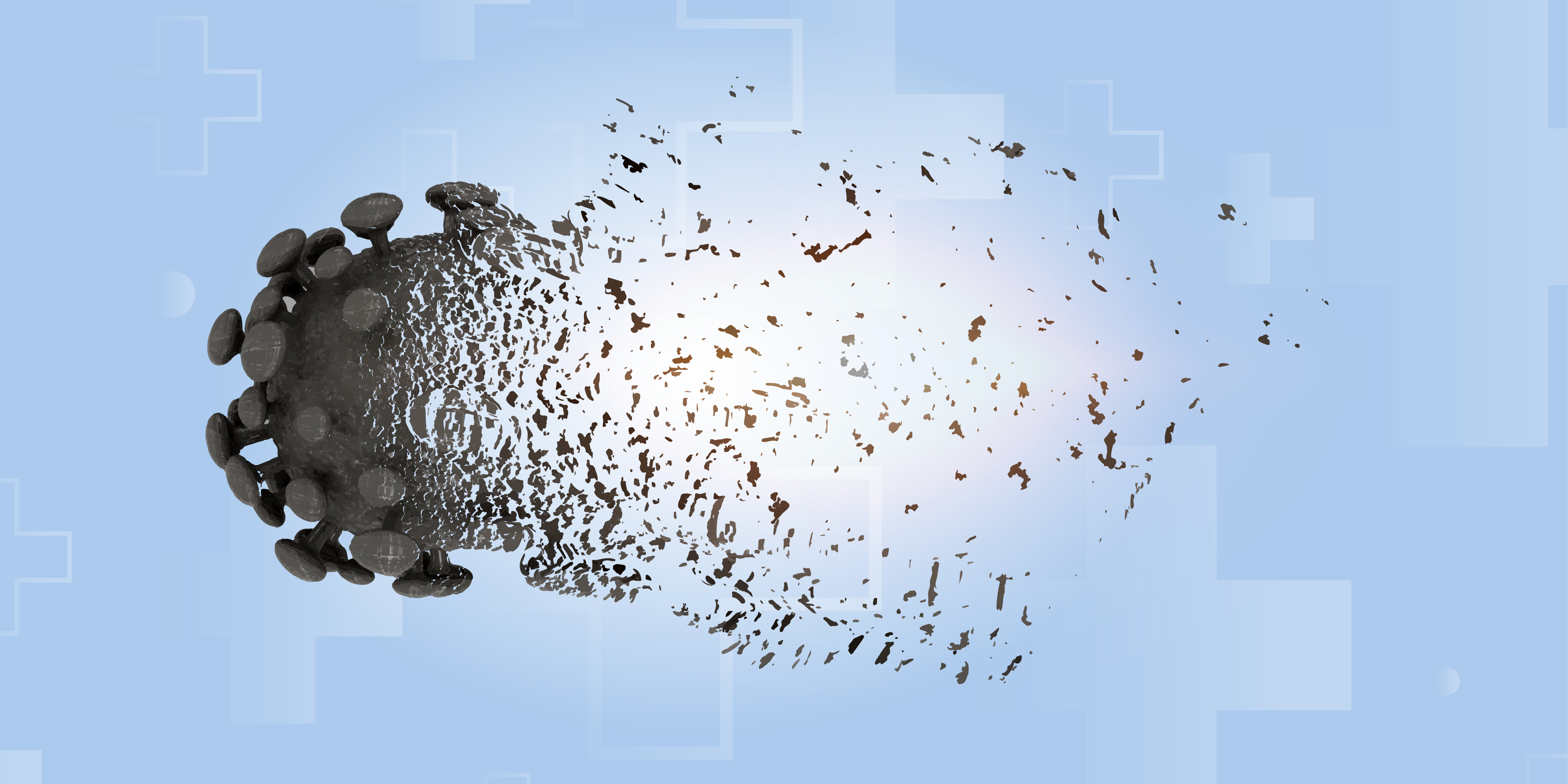
A Mortality Burden of MDR & ESKAPE Pathogens in Healthcare
Antimicrobial resistance (AMR) is a global crisis, but its impact is particularly devastating in lower middle-income countries (LMICs), such as India. In India alone, AMR is responsible for the tragic deaths of over 60,000 infants each year, according to doctors. [1]
A significant contributor to this alarming mortality burden is the prevalence of Multi-Drug Resistant (MDR) and extensively drug-resistant (XDR) pathogens, commonly known as ESKAPE pathogens, in healthcare settings.
MDR and XDR E. coli, K. pneumoniae, and MDR Acinetobacter baumannii infections have been linked to 2-3 times higher mortality rates (source: PubMed)Acinetobacter baumannii infections, in particular, are on the rise in critical care units (ICUs), posing a substantial threat to patient lives. This pathogen has gained notoriety for its ability to survive in hospital environments for extended periods and develop resistance to broad-spectrum antibiotics, making it exceptionally difficult to manage and treat. In Indian ICUs, Acinetobacter infection rates range from 12 to 41%.[2]
Understanding the Severity of MDR & ESKAPE Pathogens
MDROs are microorganisms that have developed resistance to multiple antimicrobial agents, including bacteria, viruses, fungi, and parasites. This resistance renders conventional treatments ineffective, leading to longer hospital stays, increased healthcare costs, and tragically, significantly higher mortality rates among infected individuals.
ESKAPE pathogens constitute a group of bacteria notorious for their ability to evade the effects of antibiotics. The acronym ESKAPE represents Enterococcus faecium, Staphylococcus aureus, Klebsiella pneumoniae, Acinetobacter baumannii, Pseudomonas aeruginosa, and Enterobacter species. These pathogens are responsible for about 15.5% of healthcare-associated infections and are often resistant to multiple antibiotics, making them a significant threat to patient safety. [3]
The Lethal Mortality Burden
MDROs and ESKAPE pathogens have ushered in dire consequences for India's healthcare system. Globally, it would lose 1.1–3.8% of its annual gross domestic product (GDP) due to antimicrobial resistance.[4] Patients afflicted by these resistant pathogens face a greater risk of treatment failure, prolonged illnesses, and, heartbreakingly, a markedly increased mortality rate. This places an immense burden not only on individuals and their families but also on healthcare institutions, depleting resources and impacting public health.
Bioguard's Pivotal Role in Reducing Mortality
Bioguard, a champion in the field of infection control and hygiene, is at the forefront of the battle against MDR and ESKAPE pathogens. Their range of alcohol-free and non-toxic disinfectants is designed to tackle the unique challenges posed by these tenacious microorganisms.
Effective Disinfection: Bioguard's products have undergone rigorous testing and have demonstrated effectiveness against a wide range of pathogens, including MDR and ESKAPE organisms. This efficacy is crucial in maintaining a clean and pathogen-free healthcare environment, thereby reducing the risk of infections and associated mortality.
Safety for All: Bioguard's non-toxic disinfectants can be safely used in high-risk healthcare environments such as hospitals, IVF clinics, pharmaceutical manufacturing plants, and testing labs. This ensures the well-being of both patients and healthcare professionals in the fight against these formidable pathogens.
Preventive Measures: In the battle against MDR and ESKAPE pathogens, prevention is paramount. Bioguard's products can be seamlessly integrated into infection prevention protocols, offering healthcare facilities a proactive approach to stay ahead of these evolving threats
To combat the rising threat of superbugs and reduce the mortality burden, India must invest in strengthening diagnostic labs, training more infectious disease specialists, minimizing hospital infections, and providing guidance to doctors on antibiotic use based on testing.
Traditional disinfectants have proven ineffective against the tenacious Acinetobacter baumannii , which causes severe infections in healthcare settings. The ESKAPE pathogens (Enterococcus faecium, Staphylococcus aureus, Klebsiella pneumoniae, Acinetobacter baumannii, Pseudomonas aeruginosa, and Enterobacter spp.) have grown resistance to traditional and sub-standard disinfectants. Some strains might have enhanced resistance to disinfectants due to their ability to form protective biofilms or acquire genes that confer resistance. Additionally, traditional disinfectants have lower concentrations and insufficient formulations that leads to decreased effectiveness and increased transmission risk.
Bioguard's Latest Generation QACs: A Powerful Weapon
Bioguard employs the latest generation of quaternary ammonium compounds (QACs) that are highly efficient against all pathogens, including ESKAPE organisms. These QACs are not only effective but also safe, causing no adverse health impacts.
Bioguard's products are powered by BIOCHEM®, a patented compound that enhances their cleaning and disinfection capabilities. They have been independently tested to meet the highest EN gold standards against high-risk organisms, ensuring their reliability in critical healthcare settings
The benefits of Bioguard products include:
Power of Biochem: All products are powered by BioChem®, a unique compound for high-performance cleaning & disinfection, effective against ESKAPE bacteria, viruses, and spores, including Covid-19.
Trusted & Proven: Independently tested to the highest EN gold standards against high-risk organisms.
Latest Formulation: BioChem-powered with the latest generation QACs, Bioguard products are virucidal and sporicidal effective.
MEA Tested & VOC Free: Products are non-hazardous and non-toxic, ensuring safety for end-users
Dual Action: A unique compound for high-performance cleaning & disinfection; effective against bacteria, viruses, & spores, including Covid-19
Fast & Easy: Bioguard’s formulations offer multi-applications, making them quick and effective in under 30 seconds
Efficient: Combined cleaning and disinfection capabilities eliminate the need for multiple products.
Robust: Broad Spectrum Microbiological efficacy means Bioguard products are effective against a wide variety of organisms, including ESKAPE pathogens.
Cost-Effective: 2-in-1 disinfection removes the need for multiple products, making it cost-effective, with more dilutions per liter lowering overall costs.
Cluster outbreaks of ESKAPE infections in hospital settings can be effectively addressed with Bioguard, coupled with the power of BIOCHEM technology. Bioguard's infection control disinfectants are proven to be highly effective across a range of professional healthcare settings.
India faces a grave challenge in combating the mortality burden caused by MDR and ESKAPE pathogens. Bioguard's dedication to providing innovative, safe, and effective disinfection solutions is a critical step towards alleviating this burden. By equipping healthcare facilities with advanced tools to combat these relentless pathogens, Bioguard is safeguarding the lives of patients and healthcare workers and actively contributing to public health in India. In the fight against MDR and ESKAPE pathogens, the choice is clear: Prevent ESKAPE. Choose Bioguard.


